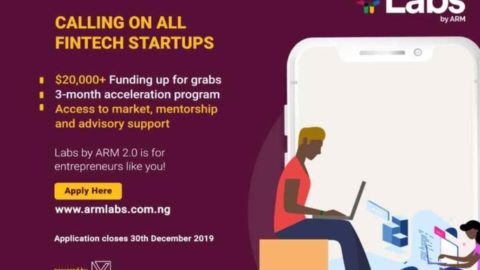 On the continent, Burkina Faso was big on the news last week. By the time the week was ending, good news filtered into people’s ears from the 17 million people populated landlocked country. Blaise Campaore, who had ruled the country for 27 years, finally took a forced bow. The protests did not start on the street, they started from the social media pages of several Burkinabès who had repeatedly questioned Campaore on his plans to tinker with the constitution and further have his tenure in office senselessly elongated. The street protest which culminated in his political death was simply to match online commentaries with actions.
On the continent, Burkina Faso was big on the news last week. By the time the week was ending, good news filtered into people’s ears from the 17 million people populated landlocked country. Blaise Campaore, who had ruled the country for 27 years, finally took a forced bow. The protests did not start on the street, they started from the social media pages of several Burkinabès who had repeatedly questioned Campaore on his plans to tinker with the constitution and further have his tenure in office senselessly elongated. The street protest which culminated in his political death was simply to match online commentaries with actions.
Burkina Faso is not going to be the last of this in Africa. Unfortunately for leaders who do not listen, the dates for such Campaore-removing moments usually come unannounced. The Nigerian government, then under Olusegun Obasanjo, understood this when it set up Service Compact (Servicom) in 2004 following the knowledge that Nigerians have for too long been feeling short changed by the quality of public service. The Ministries, Departments and Agencies, critical organs for the execution of government policies were the target here. Today, it is in doubt if Servicom has not fallen into the pit of the same problem it was set up to achieve.
Social media is the new Servicom in Nigeria and a number of countries across the world today. It is like the biblical tower of babel where there is a cacophony of voices in different languages. Some individuals manage to hit at the issue, others curse the government in power, others offer solution, a number of them also praise some occasional efforts while others simply read on and form opinion about the government. Since punchng.com, like a number of other traditional news media, became accessible to the public freely and also provided means through which the public could react to the news. The Nigerian audience has never failed to impress on who cares that they know the issues and are always willing to engage with the government through this online channel. In any case, it will take grit and determination on the ordinary Nigeria’s part to seek an appointment with a governor of the president of the country to express concern about an issue. This is largely due to the colossal red-tapism in our political leadership system. Gone with the wind are those moments when government could claim ignorance of issues of public concerns. If it does, it is because it chose to be ignorant. Nigerians, like their other African counterparts, are a talking people.
It is fashionable now to have a government desk for social media. Dr. Goodluck Jonathan has a special assistant on new media. The new governor of Ekiti state, Peter Fayose also has a Special Assistant on Information and Social Media. While these are apparent responses to the changing times, it is also important that these offices are used creatively to better feel the pulse of the people. It should also be seen by people as a form of assurance that their voices would be heard. The citizens of the country have more power to be heard now in a way that ordinarily should transform to purposeful action by our leaders.
Government needs to find a way of harvesting the massive thoughts available online for effective action and assure people that they count. The Punch Newspaper of October 30th, 2014 is a good example. Bayo Olupohunda wrote a piece titled – How immigration officers collect bribe at airports. It was published both in hard and soft copy. It was a graphic eye witness account of the mess that Nigeria’s Murtala Mohammed International airport had become. While the Lagos route is a muddle, a conversation I have also had with friends a couple of time, the Abuja airport retains some sanity. I was told then that the staff there had to be trained and warned prior to the World Economic Forum meeting that held in Abuja in May, 2014. It seems to have remained sane even after.
Olupohunda’s piece which elicited 32 comments is a good example of how government can ride on the reach and liberal nature of new media to effect change. A sizeable number of people corroborated his experience while narrating theirs which obviously happened at a different time and with different situations. In all of that, I could not help but note that a comment from the moniker Dre Peters stood out. He/she pointed clearly at the brazen corruption going on at the Ikorodu Local Government Registry (along Ebute Road). “There the woman who gives the oath asks for ‘my money’. The money is N5000 never to be remitted to the government or negotiated.” A serious government would move to uncover and stop these shameful acts following the hints provided.
Government need to find a way around filtering and putting in order comments freely available from the people they lead. There are not enough journalists to cover the stretch of the country and report all issues but citizens in their role as citizens’ journalists seem to be doing this more these days. Blogs, status updates, comments loaded through discus are putting the information out there. Government, especially at the federal and state level need to find a way to organise these comments in a way that can become actionable. Since government seems to be far away from the people and most policies seem to be crafted without a consideration of how it will affect the poor then new media technology gives a space through which government can clearly get feedback from the people before making decisions on their behalf.
It will be a grave mistake anywhere in the world today to have leaders ignore voices from the new media crowd. They are being emboldened by the day and Burkina Faso’s story is another reassurance. Valuable governance data is available to be mined and organised through new media platforms. It is not possible to be a great leader without being a great listener. Since most political office holders now have presence on social media, the use of polling tools may also give them very direct feedback on what exactly people want and what they want. It is wrong for government to embark on projects without asking people what they think. It should be participatory to the sense that people can then gain ownership of the project. Facebook and twitter polls can serve this purpose in addition to on-ground research that leads to policy planning. Government is never complete without the people. The social media route also has the advantage of being cheap and in real time mode. New media technology appears set to make government truly of the people, for the people and by the people.
———————————————————————————
Sola Fagorusi is a youth development advocate, freelance writer, accomplished debater cum coach. The Obafemi Awolowo University graduate has about 10 years experience in social entrepreneurship which straddles leadership, good governance cum anti-corruption and adolescent reproductive health. The Leap Africa alumnus is also a trained peer educator, a DESPLAY alumnus and co-facilitator. For 2 years now, he has been a technical consultant and lead judge on the Intra-Faith Peace Youth TV Debate Project facilitated by Youngstars Foundation and the British High Commission. To read his full profile, click here.







